Protect What Matters: Enterprise-Grade QR Code Solutions Designed for Data Security
Why Enterprise-Grade Security Matters in QR Campaigns?
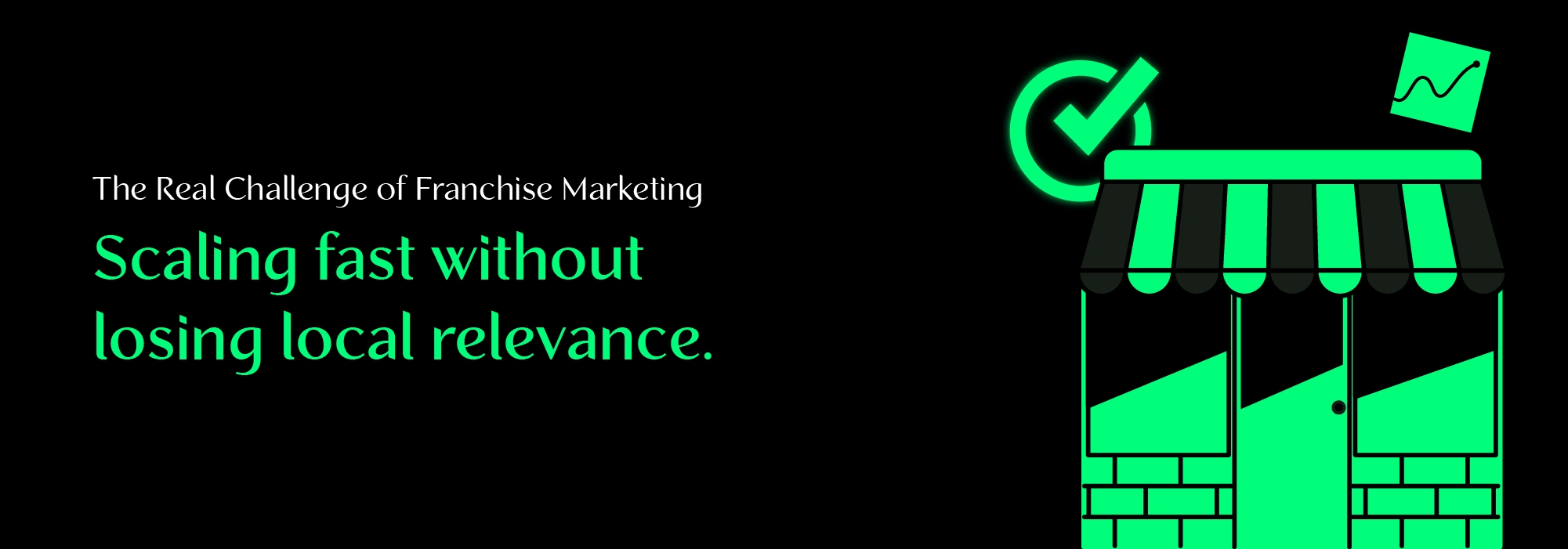
As QR codes become an increasingly central part of digital customer journeys, enterprises must look beyond just functionality and consider the implications of data privacy, content integrity, and access control. For large organizations, a single compromised QR code can lead to serious consequences: phishing exposure, brand damage, regulatory violations, and lost customer trust.
In an age of distributed marketing teams, regional operations, and global campaigns, protecting QR code usage is no longer optional. That’s why secure QR code solutions for enterprise data protection are critical — not only for compliance, but for operational continuity and brand governance.
UnicLink was purpose-built for this exact need. Unlike generic QR generators or siloed platforms, UnicLink delivers a fully managed, enterprise-ready solution designed to offer security and control at scale.
With capabilities like geo-targeted redirects, role-based access, multilingual support, scheduled content expiry, and centralized analytics, UnicLink empowers enterprise brands to protect their data and digital assets — without slowing down marketing execution.
QR Code Vulnerabilities Enterprises Can’t Afford
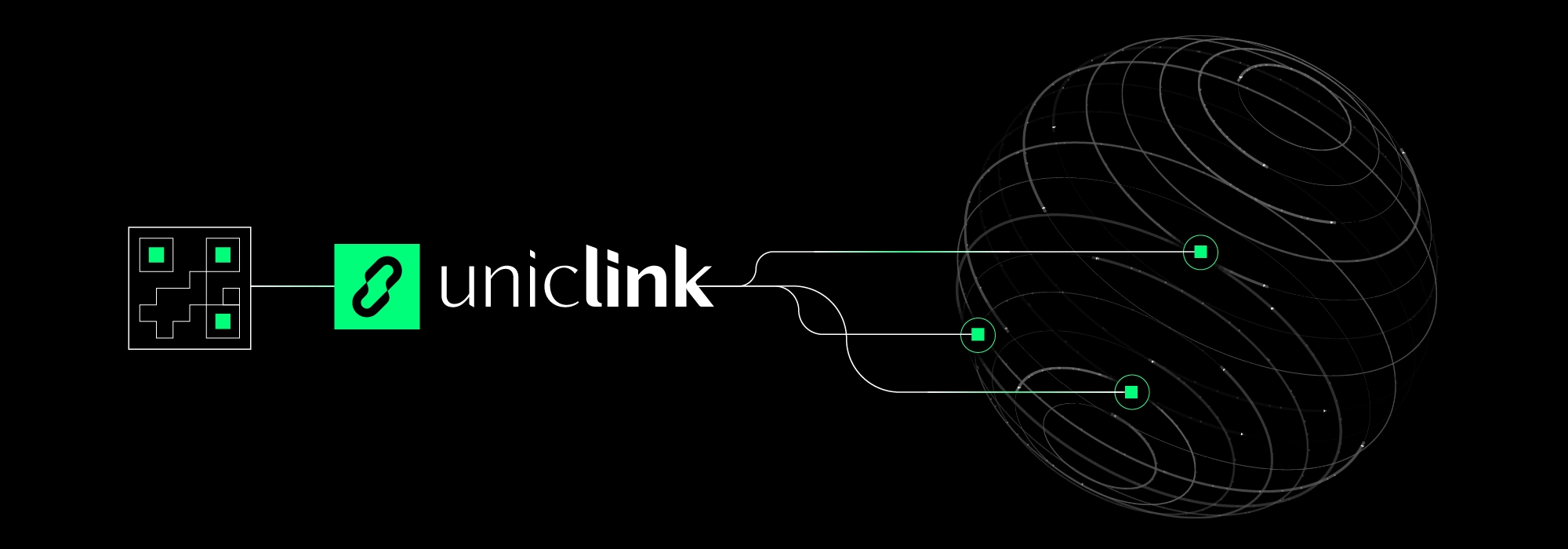
Standard QR codes are often underestimated in terms of risk. But when they are distributed at scale — across physical products, packaging, storefronts, or event materials — even small flaws in execution can become large security threats. Here are some of the most common and costly vulnerabilities enterprises face with unmanaged or under-secured QR code systems:
1. Static URLs With No Lifecycle Control
Traditional QR codes embed fixed URLs. Once printed or distributed, there’s no way to revoke access or modify destinations. If a campaign ends or a product page changes, users may land on outdated or broken content — which reflects poorly on the brand. Worse, these links can be exploited by malicious actors through redirects or impersonation if not monitored.
2. Open Redirect Risk
Basic URL redirection without security parameters opens the door to phishing attacks. If QR codes link to unsecured or third-party managed redirects, attackers can intercept traffic and lead users to spoofed pages — potentially stealing credentials, payment details, or other sensitive information.
3. Uncontrolled Content Management
Without a centralized platform, multiple teams or external partners may manage their own QR campaigns using separate tools. This results in:
- Inconsistent branding
- Duplicated or misrouted campaigns
- Little to no oversight on who created or modified a QR code
This decentralization invites compliance risk, especially in regulated industries.
4. Lack of Regional Data Compliance
Global enterprises must now comply with an array of regional privacy laws — from GDPR (Europe), CCPA (California), and PDPA (Singapore), to industry-specific frameworks in healthcare, finance, and education. Serving content or capturing data through QR campaigns without localization control can unintentionally breach these regulations.
5. Zero Visibility Into Scans or User Behavior
Many organizations launch QR campaigns with no tracking beyond the initial scan. This leaves a gap in understanding user behavior, detecting suspicious spikes, or responding to abnormal engagement patterns that could signal misuse.
Without analytics and real-time logs, there’s no way to respond to potential breaches or optimize future campaign security.
6. No Expiry or Revocation Function
If a QR code is printed on product packaging, signage, or retail displays, its usage could continue indefinitely unless actively managed. Without a platform that supports scheduled expiry or redirect fallback, content can stay live well past its intended lifecycle — exposing the business to liability.
For enterprises, these gaps aren’t just inconveniences — they are direct threats to reputation, revenue, and regulatory standing. That’s why securing your QR code infrastructure is as important as securing your websites, CRM, or any other customer-facing system.
Security-First Features Enterprises Should Demand
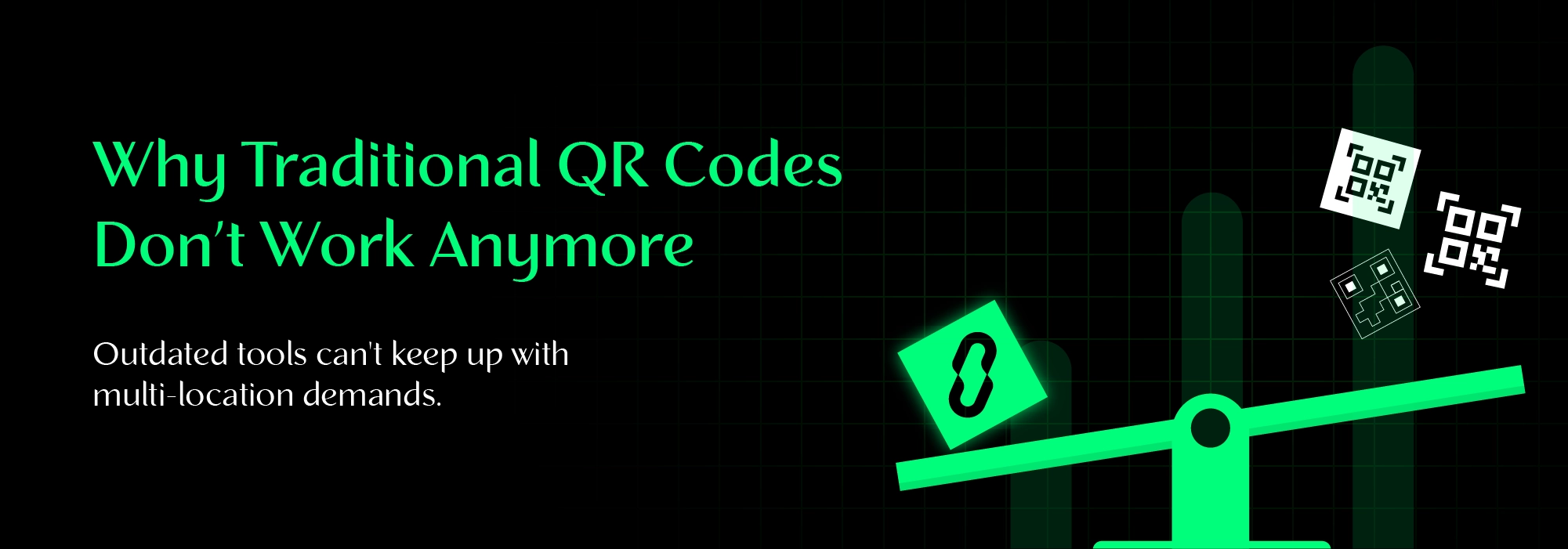
To operate securely at scale, enterprises need more than basic QR functionality — they require a platform designed around control, visibility, and compliance. Whether it’s marketing execution, IT governance, or legal oversight, the right QR code system should support cross-functional alignment without introducing risk.
Below are the non-negotiable features every enterprise should require from a secure QR code solution:
Centralized Access Control and Audit Trails
A distributed team structure demands a centralized system where every QR campaign and redirect is managed under strict permission controls. Role-based access ensures that:
- Only authorized users can create or modify campaigns
- Regional teams can operate autonomously within defined boundaries
- Every change is logged with time-stamped audit trails
This is vital for both operational accountability and regulatory audits.
Dynamic Redirects Without Exposing Static URLs
Static links are a security liability. With UnicLink’s editable redirect logic, destination URLs can be updated or swapped at any time without changing the QR code itself. This reduces:
- The risk of misdirected traffic
- The operational need for reprinting
- Exposure to link rot or outdated offers
It also allows quick response in crisis scenarios — such as removing a compromised link instantly.
Time-Based Controls and Expiry Logic
Enterprises run hundreds of campaigns with distinct start and end dates. Scheduling tools within UnicLink allow users to:
- Pre-program when QR content goes live or offline
- Automatically redirect to fallback pages after expiration
- Avoid exposure to outdated or incorrect information
This automated control protects brand credibility and reduces manual oversight.
Geo-Targeting for Regional Compliance
With data privacy laws differing across markets, it’s critical to ensure users are served content relevant to their jurisdiction. UnicLink’s geo-intelligent redirection ensures that:
- Users in the EU see GDPR-compliant landing pages
- Local disclaimers or consent requirements are honored by location
- Businesses avoid accidental violations that could trigger legal scrutiny
This capability is especially important for industries like healthcare, finance, and automotive.
Multilingual Delivery to Reduce Misdirection
Language confusion isn’t just a poor user experience — it can lead to compliance gaps. Serving incorrect product info, disclaimers, or legal messaging in the wrong language can cause liability issues.
Secure Hosting and SSL Encryption
Every landing page hosted on UnicLink is:
- Delivered over HTTPS
- Hosted on secure, monitored infrastructure
- Custom-branded to align with enterprise security policies
This eliminates reliance on third-party landing page builders or short-link services, many of which lack enterprise-grade security measures.
Branded Domains and QR Integrity
To avoid phishing attempts or brand confusion, QR codes should resolve to branded, trusted URLs. UnicLink enables QR experiences to operate under a company’s domain structure (e.g., scan.brandname.com), increasing user trust and ensuring full alignment with IT security protocols.
Real-Time Analytics and Threat Detection
Security isn’t just about prevention — it’s about detection. UnicLink provides:
- Scan heatmaps and volume tracking by location
- Alerts for traffic spikes or anomalies
- Behavior-based analysis to spot potential misuse
These insights allow marketing and IT teams to act quickly if a QR code is being abused, spoofed, or misused in an unauthorized campaign.
When all these capabilities work together, enterprises get a secure, future-ready QR infrastructure that scales with them — without compromising on performance, flexibility, or user experience.
UnicLink’s Security-Centric Infrastructure for Enterprise Brands
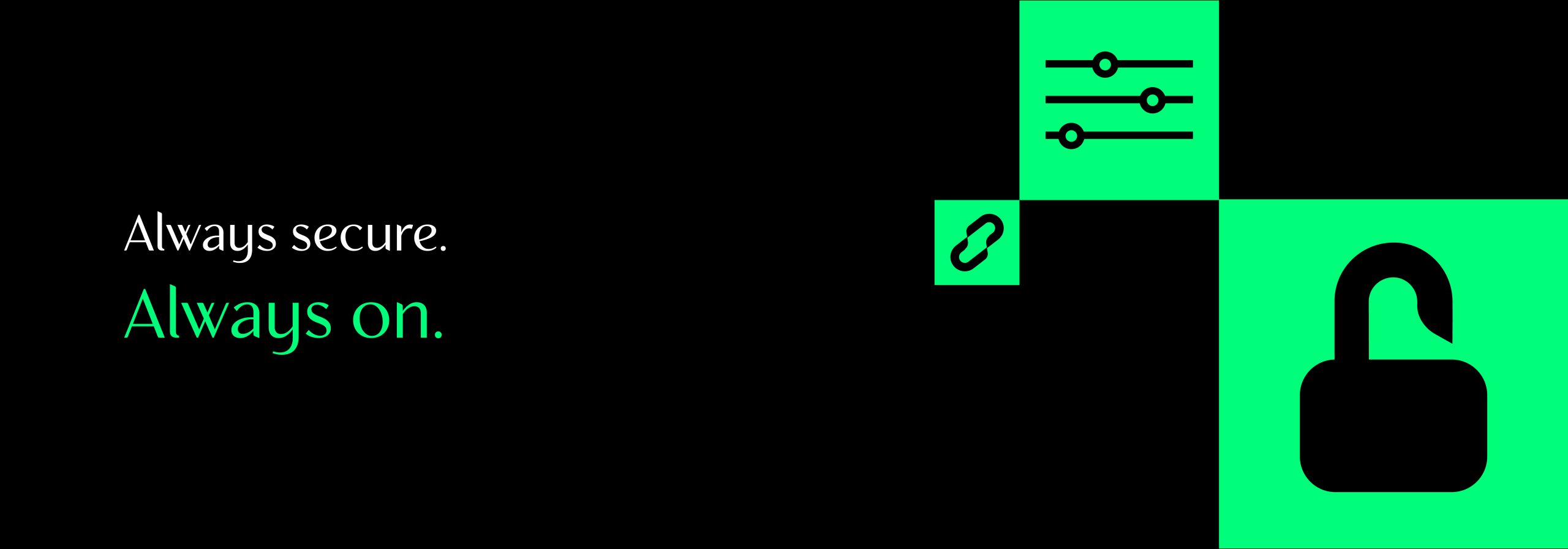
UnicLink is more than a QR code platform — it’s a fully managed security-focused infrastructure designed specifically for enterprise use cases. Whether you’re operating across multiple countries, customer segments, or regulatory environments, UnicLink enables you to deploy, monitor, and secure every aspect of your QR campaigns with precision.
Here’s how UnicLink’s core services contribute directly to enterprise data protection and campaign integrity:
Geo-Intelligent Redirection
Rather than relying on a one-size-fits-all experience, UnicLink’s geo-routing allows you to automatically redirect users based on their country. From a security perspective, this ensures:
- Users always receive region-compliant content
- Legal disclaimers and terms match the appropriate jurisdiction
- Businesses meet data residency or localization requirements
For example, a user in Germany can be served GDPR-compliant language and legal terms, while a user in the UAE sees Arabic content aligned with local regulations.
Editable Redirect Logic with No Reprint Needed
Static QR codes require reprinting every time content changes — which delays updates and exposes businesses to risk. UnicLink’s editable redirects allow you to:
- Change destinations instantly, even after distribution
- Respond to compliance updates or remove expired content
- Preserve QR usability while maintaining full flexibility
This is critical for campaigns involving sensitive timelines, such as healthcare, product recalls, or regulated financial offers.
Custom, Secure Landing Pages
QR experiences don’t stop at the scan — they continue on the landing page. UnicLink offers:
- Mobile-optimized, branded pages hosted on secure, SSL-encrypted infrastructure
- Editable content blocks for localized messaging
- No third-party hosting tools, reducing the attack surface
This ensures a secure, seamless, and compliant user experience from scan to interaction.
Scheduled Campaign Activation and Expiry
Time-sensitive campaigns present a major risk when content lives longer than intended. UnicLink’s automated scheduling tools allow you to:
- Launch campaigns at a specific date/time across regions
- Set auto-expiry with fallback links to remove or redirect expired content
- Maintain a clean, up-to-date user experience across all QR touchpoints
No manual intervention is required — protecting your brand and reducing legal exposure.
Enterprise-Level Analytics and Anomaly Detection
Security is not only about prevention — it’s about monitoring in real time. With UnicLink’s analytics, your team can:
- Track scan activity across all regions and devices
- Detect unusual traffic patterns that may indicate fraud or abuse
- Compare campaign performance across markets for better strategic control
All data is hosted securely and exportable for audits, performance reviews, or compliance reporting.
Fully Managed Infrastructure
UnicLink isn’t just a tool — it’s a managed service. Our team configures, maintains, and optimizes your QR infrastructure end-to-end. This includes:
- Custom logic setup per brand or business unit
- Multilingual landing page creation and QA
- Security audits and best practice enforcement
For large enterprises, this means minimal internal workload while maintaining full confidence in campaign security and compliance.
Key Use Cases: Where QR Code Security Matters Most
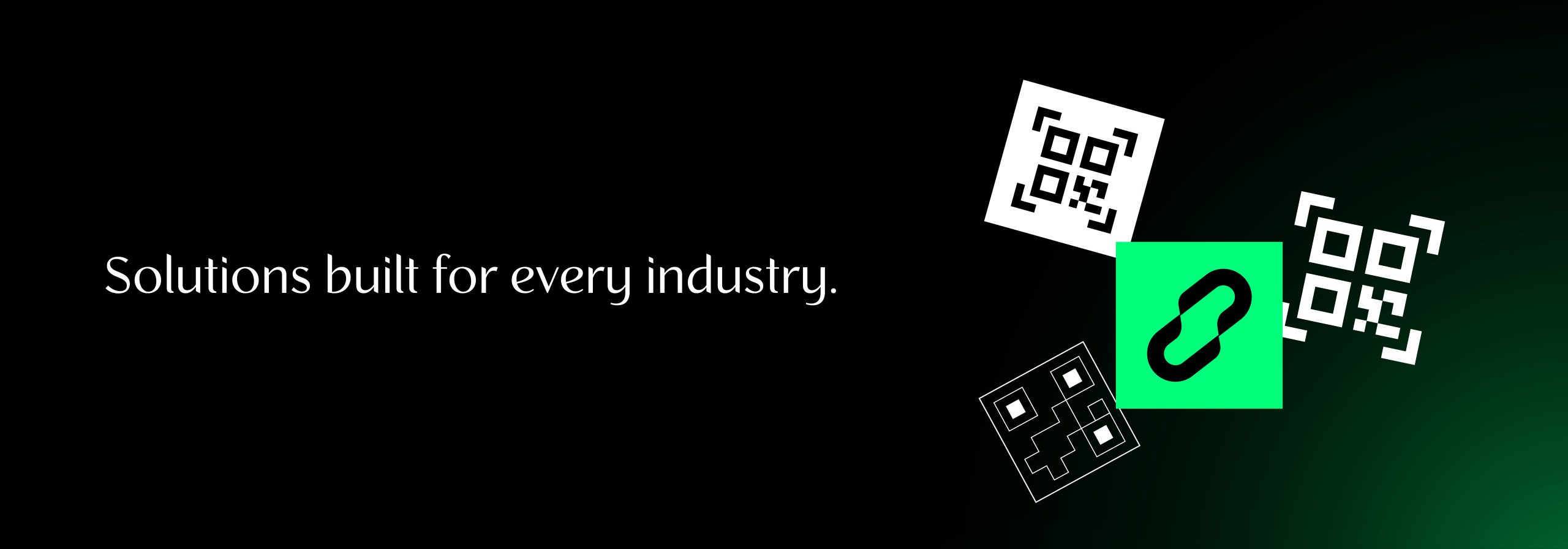
Not all QR code applications carry the same level of risk. However, for enterprise organizations — especially those operating in regulated industries or across multiple geographies — the stakes are higher. Here are five core use cases where secure QR code infrastructure is not just beneficial but essential.
1. Healthcare & Insurance
QR codes are widely used in healthcare for patient registration, accessing records, vaccination schedules, and health service directories. In insurance, they direct users to claim portals, policy details, or appointment scheduling.
Why security is essential:
- Personal data is often accessed or submitted through QR-linked forms
- Regulatory compliance with HIPAA, GDPR, or local equivalents is mandatory
- Redirects must be real-time editable in case of urgent updates or errors
UnicLink’s platform ensures that QR campaigns meet both operational and legal standards in these sensitive sectors.
2. Automotive and Manufacturing
QR codes on vehicles, manuals, or maintenance guides often link users to region-specific service centers, warranty programs, or diagnostics portals.
Risk factors:
- Incorrect routing can result in misinformation or legal liability
- Global campaigns require multilingual support and version control
- Post-sale support must comply with consumer protection laws
With UnicLink, these codes can be adjusted dynamically and localized by country or dealership — without reprinting.
3. Franchise and Retail Expansion
Large retail and QSR brands with franchises across cities or countries must manage marketing at scale while maintaining brand and legal consistency.
QR risks in retail:
- Inconsistent brand voice or design due to fragmented management
- Promotions with different validity periods by region
- Potential phishing attacks on public-facing QR codes
UnicLink offers brand-locked templates, access controls for franchise partners, and automatic content expiry to maintain governance without slowing local execution.
4. Finance and Legal Services
In finance and legal sectors, QR codes are increasingly used on documents, ATMs, printed contracts, or customer portals — often linking to sensitive legal content or regulatory disclosures.
What’s at stake:
- Legal exposure if a QR code points to outdated or incorrect material
- Fines or sanctions due to non-compliance with data privacy laws
- Fraudulent duplication of QR codes for phishing purposes
UnicLink’s secure hosting, SSL encryption, and branded domain routing reduce these threats while enabling real-time updates to maintain compliance.
5. Consumer Goods and Packaging
Many global brands now include QR codes on packaging for digital experiences like loyalty programs, sustainability disclosures, product traceability, or augmented reality promotions.
Why it matters:
- Mass distribution of static codes with no update control
- Need for regional content based on regulatory standards or languages
- Public codes are more susceptible to misuse or hijacking
With UnicLink, consumer product brands can maintain full control over post-scan experiences, geo-filtered content delivery, and versioning — all from a single codebase.
These scenarios show that QR code security isn’t a niche requirement — it’s a critical component of any enterprise-ready marketing or customer engagement strategy. When QR codes lead to data collection, legal messaging, or operational portals, businesses must treat them as high-risk digital assets that require the same safeguards as any other enterprise application.
Future-Proofing QR Strategy for Data Compliance and Enterprise Growth

For enterprise brands, QR codes are no longer just simple entry points — they are strategic assets. But as data regulations tighten and customer journeys grow more complex, companies must proactively upgrade their infrastructure to ensure compliance, responsiveness, and security.
UnicLink is designed not just for today’s marketing needs, but for tomorrow’s operational demands. As laws evolve and privacy expectations grow, your QR platform must be built to:
- Adapt quickly to changing legal frameworks
- Deliver consistent experiences across regions
- Empower teams without compromising governance
A secure QR infrastructure is also a competitive differentiator. Customers, partners, and regulators all take notice when a brand offers seamless, secure, and localized engagement — and penalize those that don’t.
With its fully managed, security-focused ecosystem, UnicLink gives enterprises peace of mind while enabling scale, personalization, and speed. From centralized control and regional compliance to editable links and intelligent analytics, UnicLink is the foundation your business needs to protect data, users, and brand integrity — now and into the future.
Conclusion: Secure QR Code Solutions for Enterprise Data Protection
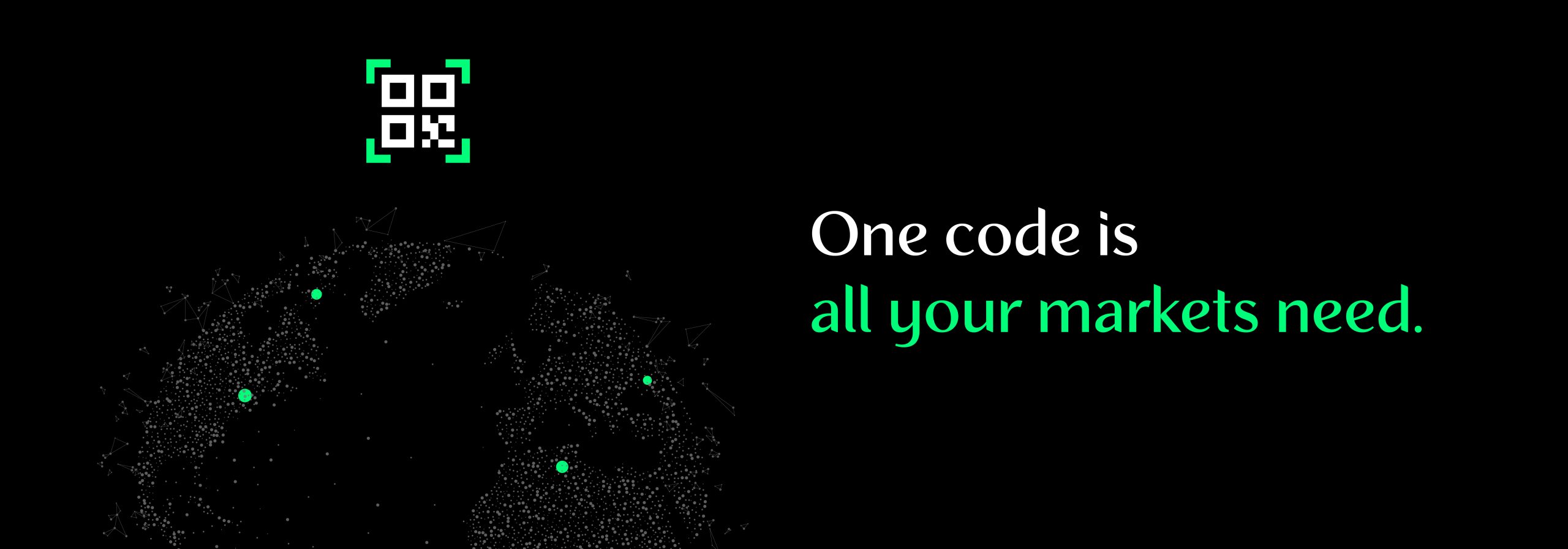
As QR codes become deeply embedded in enterprise marketing and operations, they must be treated with the same rigor as other digital assets. Outdated links, unmanaged redirects, and non-compliant content can expose organizations to reputational harm and legal risk.
UnicLink provides secure QR code solutions that ensure enterprise data protection at every level — from geo-targeted redirects and multilingual delivery to role-based access and SSL-secured landing pages. With built-in flexibility, analytics, and centralized management, businesses can scale confidently while maintaining the control and security their operations demand.
Secure your QR infrastructure now — before growth or regulation forces your hand.
FAQs
Why do enterprises need secure QR code solutions?
Because traditional QR tools lack the compliance, control, and tracking required by enterprise operations — exposing businesses to legal, operational, and reputational risks.
Can I change the destination of a QR code after printing it?
Yes. With UnicLink’s dynamic redirect logic, you can update the destination URL anytime — without needing to generate a new code or reprint materials.
How does UnicLink help with compliance (e.g., GDPR or CCPA)?
UnicLink supports geo-targeted and language-based content delivery, ensuring that users see region-appropriate, legally compliant pages at all times.
Can different teams manage campaigns without risking brand security?
Absolutely. UnicLink offers role-based access and audit trails, so each team can execute securely while maintaining centralized oversight.
What makes UnicLink more secure than basic QR platforms?
UnicLink combines SSL encryption, editable redirects, branded domains, geo-routing, campaign expiry, and full access control — all managed by an enterprise-grade infrastructure team.